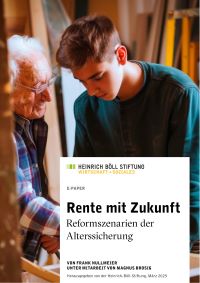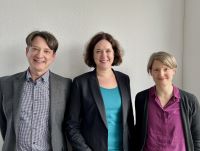
Das SOCIUM trauert um Winfried Schmähl, der am 26.03.2025 verstorben ist. Als 1989 neu an die Universität Bremen berufener Professor für die Ökonomie der Sozialpolitik baute er am damals gerade gegründeten Zentrum für Sozialpolitik (ZeS), einem der Vorläuferinstitute des SOCIUM, die wirtschaftswissenschaftliche Abteilung auf, der er bis zu seiner Pensionierung im Jahr 2007 vorstand. Unter seiner Leitung hat diese Abteilung national wie international große Anerkennung für die wirtschaftswissenschaftliche Forschung zu Fragen der Alterssicherung, Rentenpolitik und des Wandels der Arbeitswelt gewonnen.
Seine Expertise in den genannten Feldern war unumstritten und vielgefragt. Aus seiner Feder stammte 2018 das 1150 Seiten starke Standardwerk zur Geschichte der Alterssicherung in Deutschland.
Darüber hinaus engagierte Schmähl sich intensiv in der Politikberatung. Er war Vorsitzender des Sozialbeirats der Bundesregierung, Mitglied des Sachverständigenrates der Bundesregierung für den Altenbericht, Mitglied des Beirats Forschungsförderung beim Forschungsnetzwerk Alterssicherung der Deutschen Rentenversicherung sowie Mitglied der Enquete-Kommission des Deutschen Bundestages zum demographischen Wandel.
Mit ihm verlieren wir nicht nur einen hervorragenden Sozialpolitikforscher sowie einen tatkräftigen und ideenreichen Kollegen, sondern auch einen engagierten Menschen, der die soziale Realität seines Forschungsgegenstandes Alterssicherung – und die davon betroffenen Menschen – nie aus den Augen verloren hat. Seine Stimme wird uns fehlen.
Sprecherinnenteam, Vorstand und Mitglieder des SOCIUM sowie des ehemaligen Zentrums für Sozialpolitik (ZeS)














